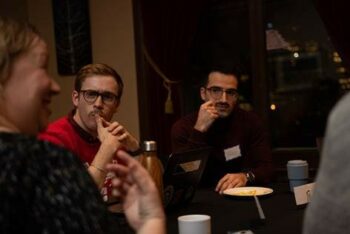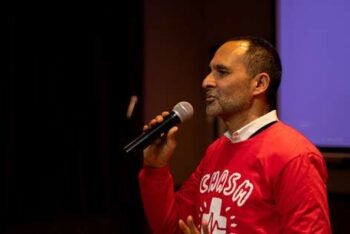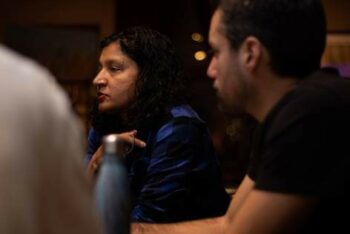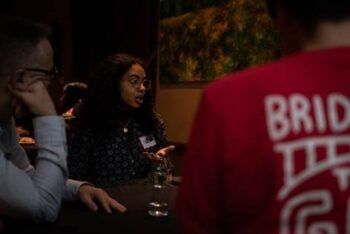By CHASM Leadership
How can we do better as a community? 14 students, seven community members, and three faculty/alumni members convened to try to answer this question – and others – on November 20, 2019 at the inaugural, and bilingual, community campus exchange organized by the Community Health and Social Medicine Incubator (CHASM) and the McGill University Faculty of Medicine’s Social Accountability and Community Engagement (SACE) office. Together, participants and facilitators alike confronted difficult and complex issues to identify Montreal-specific health priorities, foster dialogue between the next generation of social entrepreneurs, inter-disciplinary health professionals, and non-profit groups. Also, importantly for CHASM, an organization founded and run by McGill medical and public health students, the event generated valuable insight that will help inform a list of community-led project topics for CHASM’s future Needs Assessment and Impact Stream.
Planning for this event, supported by a grant from the McGill Alumni Association and Taking IT Global, began in the summer. It started with a bilingual survey created in consultation with Dr. Leah Moss, Senior Advisor to the Vice-Principal (Health Affairs)/Dean of the Faculty of Medicine and Dr. Saleem Razack, Director of SACE. The survey was circulated among students and members of the community at-large, including patient committees from major Montreal hospitals, nonprofit organizations and faculty. The results of this questionnaire formed the topics that were discussed at the evening of the exchange. They included healthcare access, poverty & unemployment, environmental health, Indigenous health, housing, racism, digital health, and care of the elderly.
The CHASM team recognizes the importance of representing different voices in the conversation. “We believe that local leaders are experts about the issues within their neighbourhoods and have unique insight into potential solutions,” says Brianna Cheng, one of the CHASM directors. “It was important that we try to incorporate this local lens as much as possible throughout the planning process to make sure this was community-driven, inside and out.”
Dr. Razack orchestrated much of the evening’s “cafe du monde” or world cafe themed discussion, where attendees circulated among the eight topics throughout the night. He guided the attendees to discuss partnerships, barriers, and opportunities to addressing each of the community health priorities, and how the training of health professionals could be changed to address them. “As a Faculty, we very much need to understand the perspectives of community organizations serving persons from marginalized groups, as we work towards excellence in the education of future health professionals, and service to communities,” notes Dr. Razack. “This event was illuminating in this regard.”
While the inaugural event is now complete, the work only continues to evolve. In the months to come, CHASM and SACE plan to synthesize the results of the event using rigorous qualitative methods to produce strategic recommendations about how CHASM and McGill Faculty of Medicine can better advocate for community engagement on campus.
Photos: Christophe Caron
December 5 2019





